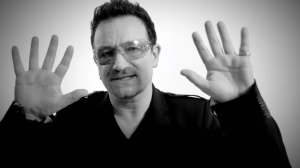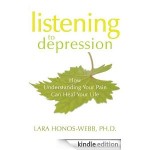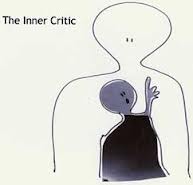
Every time a person gets depressed, the connections in the brain between mood, thoughts, the body, and behavior get stronger, making it easier for depression to be triggered again. At the earliest stages in which mood starts spiraling downward, it is not the mood that does the damage, but how we react to it. – The Mindful Way through Depression.
It has been estimated that the human brain kicks out about 50,000 thoughts per day. A majority of them for lawyers with depression are negative and pessimistic; they spin in our minds like gears in a machine. They lack an essential truth and vitality – – they’re almost parasitic – – and can suck the life right out of us. Unmoored from the shore of everyday reality, depressive ruminations calcify and harden us to our own humanity, to the beauty of others and the joy of living one’s life.
Your thoughts are rooted in your personal beliefs, morals, and principles. They are your opinions of your inner self and the outside world. Every thought you have is personal. Each one is reflective of your curiosity, experiences, and the random actions of your brain cells. Everybody has times when they get caught up in some negativity. But depression allows these thoughts and feelings to grow out of control. They can paralyze a person’s life, pulling them downward into despair.
The thoughts of a depressive mind are often boring and lethargic. When in a depressive trough, such thoughts drone on about why other people, our job and our lives stink. After years of repetition, such thoughts have worn neurochemical and structural grooves in our brains. This is why many depressives suffer from a formless ennui; doldrums that numb them to the creative engagement with the world they yearn for.
Depressive thinking ignores evidence to the contrary (e.g. that people love and care about us – – and we about them — or that our work product isn’t that bad and often times pretty good), and snubs its nose at suggestions that life can be otherwise. Folks with depression are often closed minded: the world sucks and if you try to disagree with them, they may conclude that – -well – – you suck.
Lord knows, my observations aren’t meant to be depression downers, judgmental or condemnatory. They’re meant to underscore the enormous role that habitual, unconscious ways of constructing the world with our negative thinking can lead to depression. Mind you, we don’t want Pollyannaish thoughts – happy go lucky gibberish to replace depressive thinking. Even if we wanted to, we couldn’t jettison ourselves into such a Dairy Queen-like state full of vanilla, optimistic musings about the world we live in. What we do seek to achieve is balance, a life that works and the normal rhythms of emotions that everyone deserves.
Lawyers lose sight of the fact that WE are the ones actually thinking these depressive thoughts. To heal, we must take responsibility that we are – – on some level – – choosing to think and believe in such thoughts. To get to the point where we can see this usually involves a great deal of effort and a fair amount of pain. It is often the pain of depression, and a lawyer’s desperation to stop it, that make him or her, hopefully, seek out help and question their melancholic assumptions.
Abraham Lincoln, who many forget was a trial lawyer for decades before becoming president, struggled with depression his whole life. His battles with depression, which included two suicide watches, is powerfully told in Lincoln’s Melancholy: How Depression Challenged a President and Fueled Him to Greatress. Once, when he felt the searing pain of depression, he wrote: “I’ve been driven many times to my knees by the overwhelming conviction that I had nowhere else to go. My own wisdom, and that of all about me, seemed insufficient for the day.”
Mood and Thoughts
Depression begins with a low mood – for many when they first get out of bed in the morning. Like animals that sense bad weather approaching, we can sense the fog of depression beginning to descend on us as the barometric pressure in our minds begins to fall.
In The Mindful Way through Depression, author, Mark Williams, writes:
“Negative thoughts can trigger or feed depression once a low mood is upon us. We might sink into a glum mood by thinking nothing ever goes right for me. That mood may then trigger self-criticism like why am I such a loser? As we try to unravel the cause of our unhappy state, our mood plunges. As we investigate questions about our worthlessness, we form a whole scheme of other negative thoughts, ready to be recruited at a moment’s notice in the future”.
There is, in a sense, a senselessness about depression. Or, alternatively, there may be a real reason to be upset (e.g. “I have a big trial next week and I’ve not prepared enough”), but we’ve catastrophized our circumstances to such an extent (e.g. “they’ll fire me if I lose this case) that our predicament bears little resemblance to the facts before us.
A friend of mine, who is now a judge, screwed up on a big case while working for a large corporate firm some years ago. He went home, wrote a suicide note and drove himself to a rural motel. There he downed a number of sleeping pills, drank some whiskey and lay down in bed to die. He was found, unconscious, by colleagues of his who had been searching for him all night. He didn’t lose his job – and he didn’t lose his life. But he had let his thinking take him from the fact that he had made a mistake a work to the conclusion that HE was the mistake and that such a life was not deserving of life.
Here are some examples of depressive thoughts. Reflect on how often you have thought them in the course of a day:
I feel like I’m up against the world — I’m no good –Why can’t I ever succeed? — No one understands me — I’ve let people down — I don’t think I can go on — I wish I were a better person — I’m so weak — My life’s not going the way I want it to — I’m so disappointed in myself — Nothing feels good anymore — I can’t stand this anymore – I can’t get started — I wish I were somewhere else — I can’t get things together — I hate myself — I’m worthless — I wish I could just disappear.
With this flotilla of thoughts, we filter our experiences in a consistently negative way. We cull from the raw material of daily life proof that things are as bad as we think them to be. Such cynicism corrodes a person’s soul as surely as Coke rots away the enamel on our teeth.
There has been much commentary and studies which suggest that lawyers are pessimistic thinkers and that such pessimism helps us to become better, more successful lawyers, but not very happy human beings. Read the article “Why Lawyers Are So Unhappy?” by happiness researcher Martin Seligman. We examine all of the possible dangers, pitfalls and troubles that may befall us and our clients in a case. Such thinking becomes problematic – which it does for many, many lawyers – when we turn this mode of thinking on ourselves. We can from judging facts to judging ourselves. The habit of judging ourselves severely disguises itself as an attempt to help us to live better lives and to be better people, but in actuality the habit of judging ourselves winds us functioning as an irrational tyrant that can never be satisfied.
Trying to Think our Way out of Depression
With our negative thoughts, we get perpetually stuck in a tar pit of our own making. We struggle to extricate ourselves from this gooey mess and just keep falling backwards.
“When depression starts to pull us down, we often react, for understandable reasons, by trying to get rid of our feelings by suppressing them or by trying to think our way out of them. In the process we dredge up past regrets and conjure up future worries. In our heads, we try out this solution and that solution, and it doesn’t take long for us to start feeling bad for failing to come up with a way to alleviate the painful emotions we’re feeling. We get lost in comparisons of where we are versus where we want to be, soon living almost entirely in our heads.” – The Mindful Way through Depression
We get caught up in thinking about life, rather than living life. We become obsessed with doing rather than being. The problem is our overcritical mind’s determination to solve the problem of our depression with its analytic arsenal. When we do this, our depressive mind tries to hunt down what’s wrong with us – as if we were defective people for God sake!
This way of problem-solving our depression doesn’t help us out of our distress – – it just perpetuates our downward spiral.
Be Patient with Yourself
How will I ever be able to confront all the slings and arrows of so many thoughts? It seems unachievable and impossible, we may say. We can become despondent and hopeless. Here is where patience comes in, a big deal for lawyers with depression who have a lot of trouble being patient in a loving way with themselves. They likely never learned it in childhood and our results-now driven society doesn’t teach or promote it. Without patience, we drop out of therapy, stop taking medication or generally flop around on our office’s carpet like some sort of fleshy carp.
It took awhile for us to fall into the pickle barrel of depression and it will take effort, time and patience to crawl out of it.
For once, just once, try being kind and patient with yourself today as you struggle to heal from your depression. We need to move from being hopeless to being . . . just human.






















